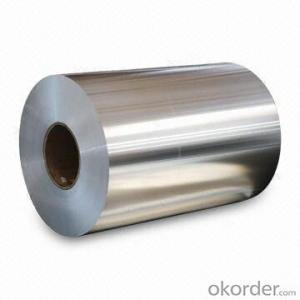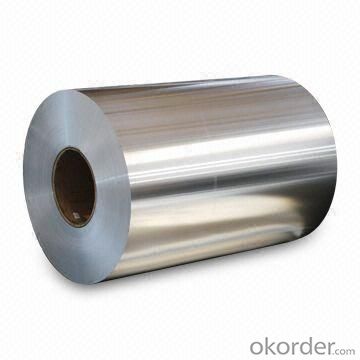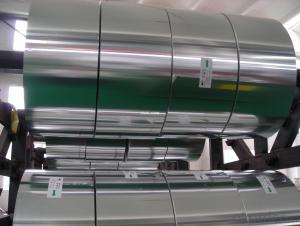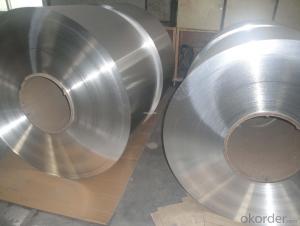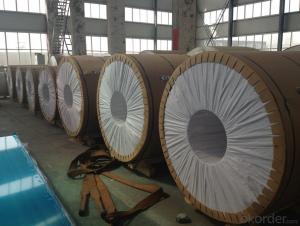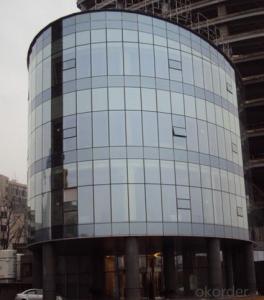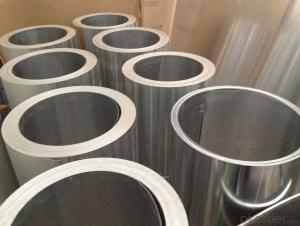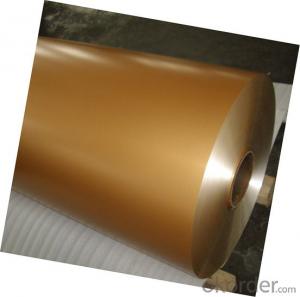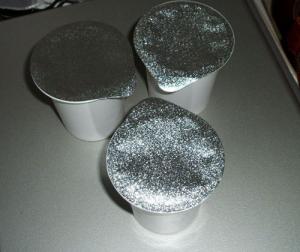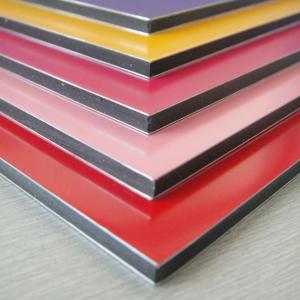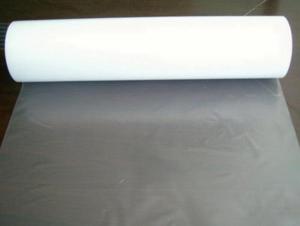Aluminum Anodized Aluminum Coil for Gutter Making in China
- Loading Port:
- Shanghai
- Payment Terms:
- TT OR LC
- Min Order Qty:
- 5 m.t.
- Supply Capability:
- 100000 m.t./month
OKorder Service Pledge
OKorder Financial Service
You Might Also Like
Specification
Product Description
Commodity: Aluminum coil jumbo rolls
Alloy: 1050/1060/1100/1200/3003/3004/3005/3105/5005/5052/5754/5083/6061/8011
Temper: O, H12,H14,H16,H18,H22,H24,H32,H112,T6
Gauge: 0.2mm-8mm
CC and DC material with higher tensile strength and bigger elongation
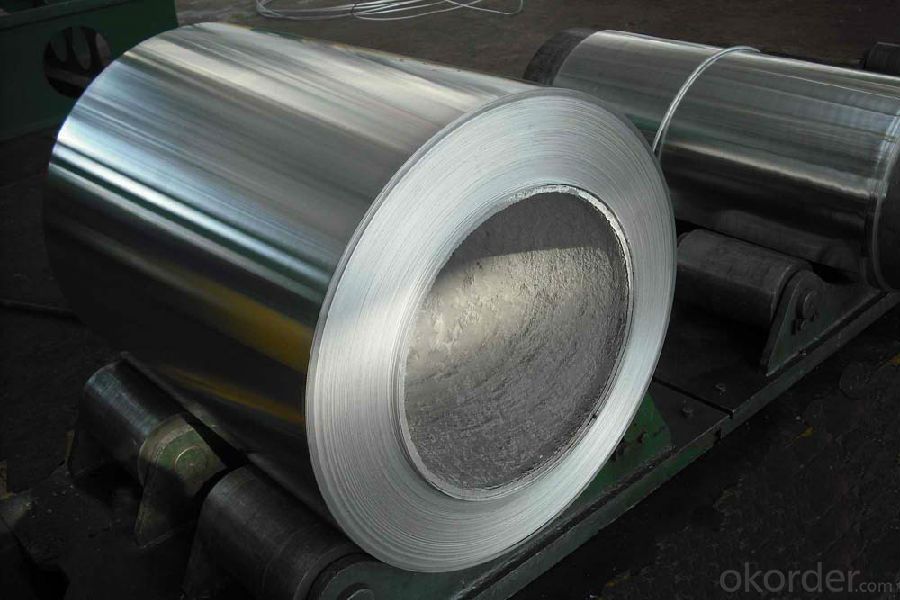
Aluminum Coil - Packaging
Standard Packaging
- Vertical axis packaging
- Core types: Fiber, Aluminum, Steel, Plastic
- Inner Diameter (ID) as required
- Outside Diameter (OD) as required
- Inserts as required
- Separators as required - cardboard or wooden slates
- Wooden Pallets or Crates
Custom Packaging
- Custom packaging, coil weights, inner diameters and outer diameters are available upon request.
Export Packaging
- Export packaging in conformance with IPPC International Standards is available upon request.
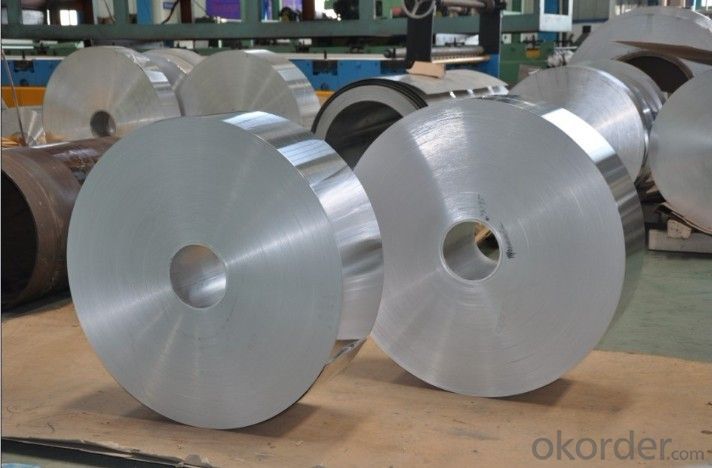
CNBM has passed ISO9001 and ISO14001 successfully, and also approved by American Food and Drug Administration (FDA). By the good product quality and professional service, we have set up a complete sales network. Until now, our products has exported to more than 20 countries and regions including Europe, USA, Canada, Brazil, Southeast Asia and middle east etc.
Our main products for aluminum coils are as follows:
Commodity | Alloy | Temper | Thickness /mm | Width /mm | |
Base material | 1235 1200 1140 8*** | H14 H18 | 0.25-1.00 | 950-1340 | |
Coil for PS | 1050 1060 | H18 | ≥0.2 | 830/920 1030/1050 | |
Sheets for PS | 1050 1060 1070 | H18 | 0.13-0.3 | 650-1300 | |
Strip for venetian blinds | 5052 | H19 | 0.13-0.3 | 300-1300 | |
Coils for composite panels | 1100 3003 3005 | H18/HX2 HX4/HX6 HX8 | 0.03-1.0 | 1000-1300 | |
Coils for other uses | 1100 1235 3004 5052 8011 | H14 H18 H24 O | 0.3-0.4 | 1000-1600 | |
Sheets/Strips for other uses | 5052 | O/H32/H34 | 0.07-2.0 | 950-1550 | |
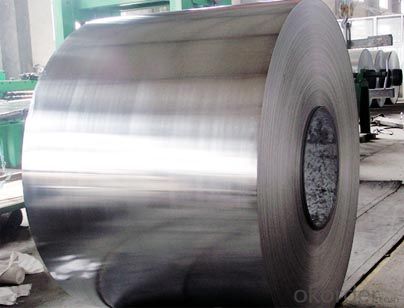
Our Services
CNBM is ready to assist with any product needs or enquiries. We value our customers and welcome your thoughts and feedback.
Please send comments, questions and requests through alibaba or our personal contact so they can be directed to the appropriate department.
About samples: Based on our company rules, a few samples are willing to be offered, but clients are requested to pay freight.
Working time:9:00~17:30(GM+8) from Monday to Friday, but you also can contact with us via personal contact information during our leisure time. We will try our best to offer you service in 24*7 hours.
Any quality, quantity problems are occured, response you will get in time not over more 24 hours after we recieve your complains. Problems will be solved in one week throught friendly negotiation.
FAQ
Q: Can you provide free samples?
A: Yes, free samples will be sent to you on freight at destination.
Q: Can I get your latest catalogue?
A: Yes, it will be sent to you in no time.
Q: What is the MOQ?
A: 5 tons
Q: What are your payment terms?
A: We accept L/C, D/A, D/P, T/T, West Union,etc.
If you are interested in our products, please do not hesitate to contact with us via following information
- Q: Is it possible to recycle aluminum cans and turn them into new cans?
- <p>Yes, aluminum cans can be recycled into new ones. The recycling process involves melting the used cans, which is much less energy-intensive than extracting and refining new aluminum from bauxite ore. Once melted, the aluminum can be reshaped into new cans or other products. This process is not only environmentally friendly but also economically efficient, as it saves energy and reduces waste.</p>
- Q: This question asks about the amount of energy needed to produce aluminum.
- <p>The energy required for the production of aluminum is substantial. Producing one ton of aluminum typically requires around 15-25 kilowatt-hours of electricity, largely due to the process of electrolysis, which is used to extract aluminum from its ore, bauxite. This high energy consumption is a significant factor in aluminum production costs and environmental impact. The energy required can vary based on the efficiency of the smelting process and the source of electricity used.</p>
- Q: This question seeks to understand the impact of aluminum exposure on human health, including potential risks and consequences.
- <p>Aluminum is a common element found in the environment, and while it is generally considered safe, there are concerns about its health effects on humans. High levels of aluminum exposure have been linked to neurological disorders, particularly Alzheimer's disease, although the relationship is not definitively proven. Aluminum can also cause bone diseases and anemia, as it can interfere with the absorption of calcium and iron. Long-term exposure to high levels of aluminum may lead to cognitive dysfunction and memory loss. However, the everyday exposure to aluminum from food, water, and medications is considered safe by health authorities, and there is no need for alarm in normal circumstances.</p>
- Q: Explain the differences between aluminum and iron, including their properties and uses.
- <p>Aluminum and iron are distinct metals with different properties and uses. Aluminum is lightweight, corrosion-resistant, and has a lower melting point, making it ideal for applications like beverage cans, aircraft construction, and electrical wiring. It is a good conductor of heat and electricity but is less strong than iron. Iron, on the other hand, is heavier, stronger, and has a higher melting point. It is a key component in steel, which is used extensively in construction, automotive, and machinery due to its strength and durability. Iron is also magnetic, unlike aluminum, and is crucial in electromagnetism applications.</p>
- Q: Is it possible to use aluminum as a treatment for diseases?
- <p>Aluminum is not typically used to treat diseases directly. It is a common element found in the Earth's crust and is used in various industries, such as manufacturing and construction. However, aluminum compounds can have medicinal uses in specific contexts. For example, aluminum hydroxide is used as an antacid to neutralize stomach acid and treat conditions like heartburn. It's important to note that aluminum should not be ingested in large amounts, as it can be harmful. Always consult a healthcare professional for proper treatment and medication advice.</p>
- Q: Can aluminum be recycled repeatedly without losing its quality or strength?
- <p>Yes, aluminum can be recycled multiple times without significant degradation in quality or strength. The recycling process retains most of its original properties, making it one of the most sustainable materials. Each recycling cycle does not diminish its performance, unlike some other materials. This characteristic makes aluminum a valuable resource in reducing waste and conserving energy.</p>
- Q: This question asks for various applications or purposes that can be served by using aluminum scrap material.
- <p>Aluminum scrap can be repurposed in numerous ways due to its recyclability and durability. Some alternative uses include manufacturing new aluminum products, such as cans, foil, and automotive parts. It can also be used in construction for materials like window frames and roofing. Additionally, aluminum scrap is utilized in the production of everyday items like bicycles, furniture, and even in some types of cookware. Furthermore, it can be employed in the aerospace industry for aircraft parts and in the electronics industry for components. Recycling aluminum scrap not only conserves resources but also reduces energy consumption and environmental impact.</p>
- Q: This question asks about the reactivity of aluminum with various substances, including its chemical reactions and properties.
- <p>Aluminum is a highly reactive metal that readily reacts with oxygen to form a protective layer of aluminum oxide on its surface. It can also react with acids, such as hydrochloric or sulfuric acid, to produce hydrogen gas and aluminum salts. In the presence of a strong base, aluminum can react to form aluminates and hydrogen gas. Additionally, aluminum can reduce certain metal oxides, such as iron oxide, in a thermite reaction. However, due to its reactivity, aluminum is often used in alloys with other metals to improve its strength and corrosion resistance.</p>
- Q: What are some environmentally friendly options that can replace aluminum in various applications?
- <p>Sustainable alternatives to aluminum include biodegradable materials like bamboo and hemp, which can be used in construction and packaging. Stainless steel is a recyclable metal that can replace aluminum in many applications due to its durability and strength. Recycled aluminum itself is a sustainable option as it requires less energy to produce than new aluminum. Additionally, magnesium and titanium are lightweight metals that can be used in place of aluminum in certain industries. It's important to consider the specific application when choosing an alternative, as each material has its own set of properties and environmental impacts.</p>
- Q: Is aluminum a material that can be utilized in medical or pharmaceutical applications?
- <p>Yes, aluminum is used in medicine and pharmaceuticals, primarily in the form of aluminum salts. It is used as an adjuvant in vaccines to enhance the body's immune response. Aluminum compounds are also used as antacids to neutralize stomach acid and in some medications as a buffering agent. However, its use is regulated due to potential health concerns, and it's important to note that aluminum is not used in direct contact with the body for extended periods due to its potential toxicity.</p>
Send your message to us
Aluminum Anodized Aluminum Coil for Gutter Making in China
- Loading Port:
- Shanghai
- Payment Terms:
- TT OR LC
- Min Order Qty:
- 5 m.t.
- Supply Capability:
- 100000 m.t./month
OKorder Service Pledge
OKorder Financial Service
Similar products
Hot products
Hot Searches
Related keywords
